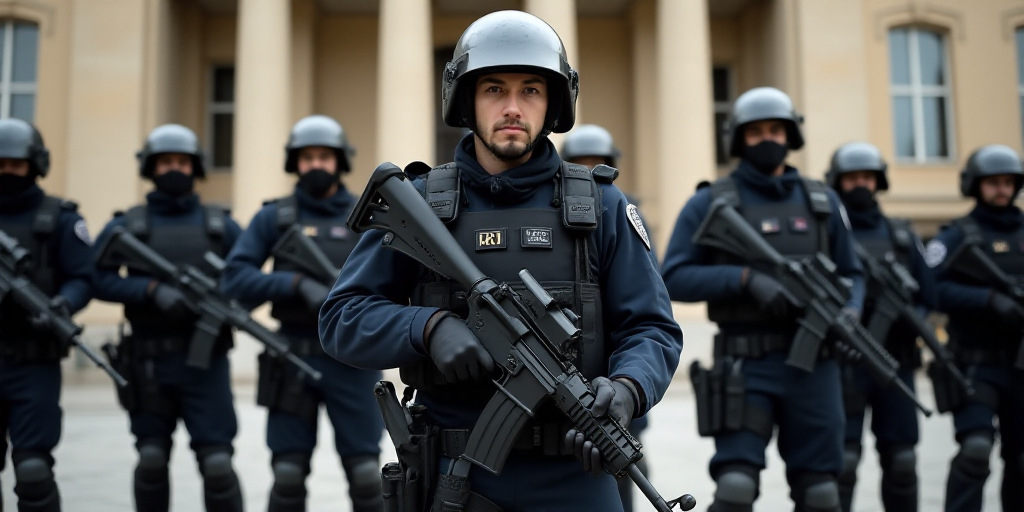Background on Key Figures and Context
India and Pakistan, two nuclear-armed nations with a history of conflict, agreed to a “total and immediate” ceasefire on Saturday, following days of mutual air, missile, drone, and artillery strikes. The announcement was made by U.S. President Donald Trump, who praised both countries for using “common sense” in the escalating situation.
Ceasefire Agreement Details
According to India’s Ministry of External Affairs, both countries committed to ceasing “all shooting and military actions on land, air, and sea” starting at 11:30 GMT. Pakistan’s Foreign Minister, Ishaq Dar, confirmed the agreement on X (presumably a social media platform) stating that “Pakistan and India have agreed to an immediate ceasefire.”
A source from the Indian government, speaking on condition of anonymity to AFP, revealed that the ceasefire was directly negotiated between the two countries.
Escalation Leading to Ceasefire
Prior to the ceasefire announcement, Pakistan launched attacks on several Indian air bases. Colonel Vyomika Singh confirmed “multiple high-speed missile strikes” targeting air bases, though material damage was reportedly limited.
Pakistan accused India of launching missile attacks on three of its military bases, including one near Rawalpindi, about ten kilometers from the capital, Islamabad. Authorities in Pakistan-administered Kashmir reported the deaths of 11 civilians due to Indian bombardments overnight.
Conflict Origins in Kashmir
The conflict began with a terrorist attack on April 22 in Indian-administered Kashmir, killing 26 people—mostly Hindu men—in an incident that India attributes to Pakistan. The Lashkar-e-Taiba, a Pakistan-based group labeled as “terrorist” by the UN, is blamed by India for the attack, a claim denied by Islamabad.
Since gaining independence from British rule in 1947, India and Pakistan have fought multiple wars over the control of Kashmir.
International Calls for Restraint
Before the ceasefire announcement, U.S. Secretary of State Marco Rubio urged both nations to “avoid miscalculations.” China also advocated for calm through the G7, which comprises leading industrial nations.
“No More Options”
The Indian strike on Pakistan’s Rawalpindi airbase was audible in Islamabad, the capital. This airbase is used to receive foreign dignitaries; Saudi Arabia’s Deputy Foreign Minister Adel Al Jubeir had visited there recently.
In Srinagar, the capital of Indian-administered Kashmir, reporters documented powerful explosions throughout the night. The military airbase in Awantipora, on the outskirts of the city, was reportedly targeted, according to an anonymous police officer.
In Amritsar, a city in the Indian state of Punjab bordering Kashmir, several drones flying over a military area were “immediately destroyed,” as reported by the Indian army.
In Jammu, the second-largest city in Indian-administered Kashmir, people rushed to board special evacuation trains. “There were strong explosions all night,” said Karan Varma, a 41-year-old bricklayer. “There’s no other option but to leave.”
Most evacuees were low-income workers from other parts of India attempting to return home.
Armed groups operating in Kashmir have increased their activities since 2019, when India’s nationalist Hindu government, led by Prime Minister Narendra Modi, revoked the region’s limited autonomy and placed it directly under New Delhi’s control.
Key Questions and Answers
- Who are the main parties involved? India and Pakistan, two nuclear-armed nations with a history of conflict.
- What led to the recent escalation? The conflict began with a terrorist attack in Indian-administered Kashmir on April 22, which India blames on Pakistan.
- What is the significance of the ceasefire agreement? The agreement aims to prevent further escalation and potential wider conflict between the two nuclear-armed nations.
- How have international actors responded? The U.S. and China have called for restraint and avoidance of miscalculations.
- What is the background of the conflict in Kashmir? Since gaining independence from British rule in 1947, India and Pakistan have fought multiple wars over the control of Kashmir.






